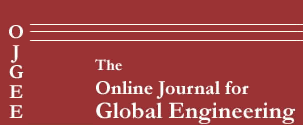Abstract
Global markets are currently dictating the way that national economies around the world design and distribute consumer goods and services. Engineers are in the midst of this dynamic development. In this context, universities around the world are increasingly making an effort to establish international partnerships in their educational and research programs. Study abroad or international programs provide students value-added technical and cultural experiences, and are recognized as high-impact educational experiences. However, engineering students typically do not have the same variety of offerings of international program as students in other disciplines, such as the humanities or social science fields. In this article, the authors provide an overview of the critical aspects of developing a consortium among two universities in the U.S. and two Brazilian universities. The goal of this consortium is establishing a self-sustainable student exchange program in undergraduate engineering education, and increasing the opportunities and participation for American engineering students in international experiences. The activities in this program include the establishment of an agreement between the institutions, the implementation of a course transfer process, and the development of a procedure for foreign language training and cultural preparation. In addition, the authors also discuss the key lessons learned over the first three years of the four-year program (October’07 to September’11).
Recommended Citation
Oliveira, Aurenice M. and Lima, Ivan T. Jr.
(2010)
"A Step towards Global Engineering Education: The U.S.−Brazil Engineering Exchange Partnership,"
Online Journal for Global Engineering Education:
Vol. 5:
Iss.
1, Article 2.
Available at:
https://digitalcommons.uri.edu/ojgee/vol5/iss1/2
